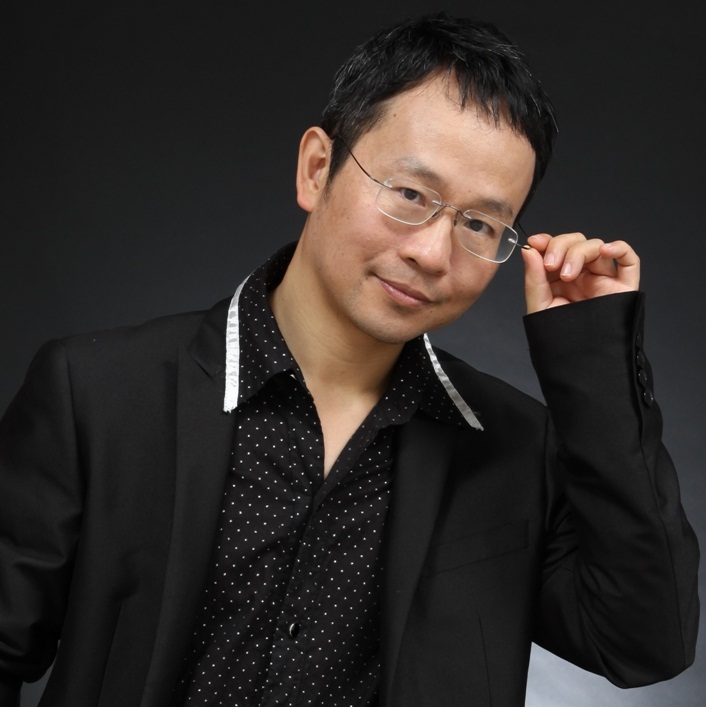Keynote Speeches
Professor Chin-Chen Chang |
|
|
|
| Topic: | The Recent Developments in Visual Cryptography |
| Abstract: |
The computer technologies have grown significantly in the past years. More and more multimedia products such as digital cameras have become popular, so digital images are shared and transmitted widely over Internet.
However, transmitting secret or important images, such as military or commercial images, over Internet is very dangerous. Malicious users may monitor Internet and try to eavesdrop these valuable images. To protect these images, visual cryptography is necessary for secure communications over Internet.
Herein, secret image sharing can be applied to achieve the goal of visual cryptography. In this speech, I will talk about some visual cryptosystems based on the concept of secret image sharing. |
| Biography: |
Professor C. C. Chang was born in Taichung, Taiwan on Nov. 12th, 1954. He obtained his Ph.D. degree in computer engineering from National Chiao Tung University. He's first degree is Bachelor of Science in Applied Mathematics and master degree is Master of Science in computer and decision sciences. Both were awarded in National Tsing Hua University. Dr. Chang served in National Chung Cheng University from 1989 to 2005. His current title is Chair Professor in Department of Information Engineering and Computer Science, Feng Chia University, from Feb. 2005. |
Professor Liang Chen |
|
|
|
| Topic: | The Tale of Human Face Recognition |
| Abstract: |
What can Computing Machines do better than human beings? The jobs that require "massive" computing resources! But what are we going to "teach" a machine if we human beings do not know how to do a job? |
| Biography: |
Professor Liang Chen (http://web.unbc.ca/~chenl/) received his PhD in Computer Science from Institute of Software, Chinese Academy of Sciences (Academia Sinica), China, in 1994. He is currently professor of computer science and professor on interdisciplinary program at University of Northern British Columbia (UNBC), BC, Canada. He was the former Chair of Computer Science Department at UNBC. Before coming to Canada in 2001, he spent time in China, France and Japan. Dr. Chen's research areas include pattern recognition, intelligent language tutoring system, and the computational intelligence fields.
|
Professor Tao Zhou |
|
|
|
| Topic: | Information Filtering From Social Networks |
| Abstract: |
The development of information systems, especially the explosive growth of Internet and World Wide Web has led to irreversible changes in our life. We are now facing rich and colorful information sources that we could not imagine a decade ago. However, the amount of information is increasing faster than our processing ability, thus evaluating all these alternatives and then making choice becomes infeasible. This information overload problem asks for automatic techniques on information filtering. This presentation will discuss the information filtering problems in large-scale social networks. I will start with the simplest yet the most fundamental information filtering problems: ranking and predicting. Then I will summarize our recent efforts on the personalized recommendation. Finally, I will discuss what the differences between the current- and the next-generation recommender systems are. |
| Biography: | Tao Zhou received his Bachelor's degree from the University of Science and Technology of China in 2005. He obtained his Ph. D. majoring theoretical physics from the University of Fribourg in 2010. In March 2010, he was awarded a full professor position in the University of Electronic Science and Technology of China. His main research interests include infophysics, complex networks and human dynamics. He has published more than 110 SCI journal papers, and about 50 papers have been published in prestigious journals, including PNAS, Physical Reviews, New Journal of Physics and Europhysics Letters. Reports on his works appeared in many mainstream academic media, including Nature News, PNAS News, My Science, PhysOrg, TG Daily, Dutch Science Magazine, L¡¦Atelie, etc. All his publications have received more than 1200 citations according to the Web of Science, and his H-index is equal to 18. He is an editor or guest editor of many scientific journals, including Physics Procedia, Journal of Computer Science and Technology, Journal of Electronic Science and Technology, etc, and a standing referee of more than 20 SCI journals. He was awarded the 2010 Chorafas Prize for Young Scientists (19 young scientists over the world has obtained this prize in 2010), the first prize for Natural Science Progress by Chinese Education Ministry in 2009, and the first prize for Natural Science Progress by Anhui Province in 2009. |